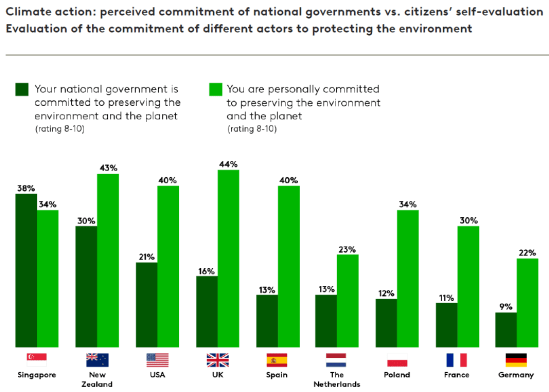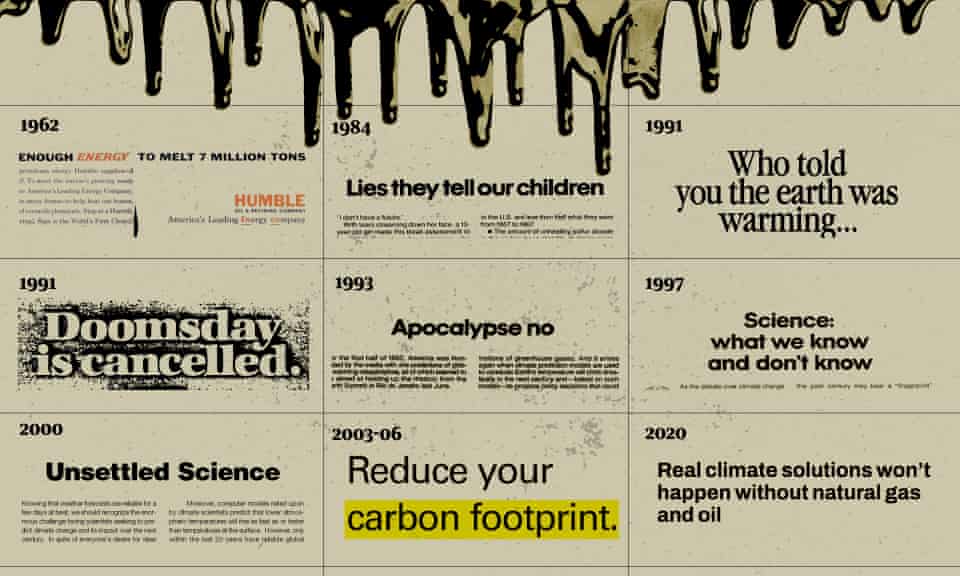Kantar Public, part of an international consulting company, advises on public policy, services and communications. Analysts examined attitudes about the need for climate actions. What they found might be paraphrased as, “We know things need to change but mostly, it’s someone else’s job.”
The 2021 Nobel Prize for Physics was awarded to three scientists for groundbreaking contributions to “knowledge of the Earth’s climate and how humanity influences it…” That may evidence growing climate consciousness but Kantar Public considers if individuals are ready to change lifestyles to limit human effects on the environment.
Some findings:

When asked to indicate the three main environmental challenges currently facing the world, 62% of respondents across the nine countries covered in our research put climate change firmly at the top…
When answering the same question regarding their own country, people cite climate change as the main issue in eight out of the nine countries surveyed – Poland being the only exception, with air pollution being identified as the most significant issue…
When it comes to assessing its impact, more than three out of four people say that there has been an impact at the global level (78%) and country level (76%). And over half the respondents (55%) say that they have been personally impacted…
When invited to evaluate their personal commitment to protecting the environment and planet, two thirds of respondents give themselves a much better rating than to their fellow citizens…
Kantor Public found that individuals rate their own concern for climate change higher than that of others. Many believe that other people, governments, public agencies, corporations, and media are less sensitive to the need to alter behaviour that exacerbates climate change.

Large companies are seen as the least committed to preserving the planet, which is not surprising since we seldom hold corporations accountable for bad behaviour.
The reality is that when citizens perceive that others lack commitment, they are less likely to convert their own concerns into action. We see this when Canadians who are not full-blown climate change deniers say things such as:
Yes, per capita, Canada may be among the world’s largest contributors of greenhouse gas emissions but the absolute totals are less than nations like China, and if they continue to burn coal, oil and natural gas, we shouldn’t make changes that result in our country making economic sacrifices.
In 2020, Ipsos polling suggested that six in ten Canadians think government must act now to combat climate change but that many are unwilling to change their own behaviours.
Because it values the increases to GDP created by fossil fuel production, the BC Government prefers to address climate action through manipulative advertising campaigns. That way, little may be done but citizens will think they’re doing much. It’s an old strategy that worked for industrialists.
Categories: Climate Change





It makes perfect sense to people to not change their own financial situations or comfort, if on the whole it doesn’t impact things. People look at China and India along with some other countries and think, what is it going to do if I give up………. On one level you can’t blame them. On the other, people might want to think about each of us have a responsibility to do something.
People’s whose lively hoods depend upon logging don’t see the point in giving up their jobs and loosing their means to provide for themselves and family. Its a good point. On the other hand, if we continue at the rate of logging we are doing now, the trees will run out so its a question of being out of a job now or being out of a job later, but with no trees left and having effected our quality of life, quality of air, etc. The question then becomes, what will loggers and truckers do for a living because not all are going to be interested in working as health care workers, service industry workers, etc.
We need to bring China to heel on the enviornment. We can do that by not purchasing their products. Started that over 2 decades ago. We can stop shipping coal to them. yes, Australia will continue, but we don’t have to.
If each person did one thing to help the enviornment its a start. I don’t think banning plastic bags at the grocery store is going to do much, but it makes people think something is being done. charging for the use of one use paper cups is plan stupid. It just makes more money for the companies, because as I understand it they keep the money.
Our government could ban the shipping of garbage and recycling to other countries. Now that would help. As we have seen it simply moves the problem around.
Electronics contribute to problems. How about keeping your phone until its dead instead of purchasing a new one every year or two and keeping your computer until it no longer works, ditto for T.V.s . It actually s.aves you money.
It all comes down to greed. Governments might want to start taxing polluting corporations and stop giving industries like oil tax breaks. Giving oil companies tax breaks is like killing ourselves
LikeLike